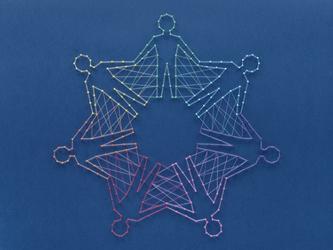Rethinking class identity in research

When you think of class, what do you think of? And what are the markers of class? Traditionally, those have been defined by the extent of either one’s leisure hours or time spent working.
Class, like many layers of identity today, no longer conforms to such a strict definition. As such, the way we as researchers think about class has changed, although when we are talking about defining working class identity, it’s still a challenge to find a common language or set of parameters to work within.
Despite pressure to change, social class is not a protected characteristic in the UK under the Equality Act 2010, further adding to the complexity. This is a topic that the MRS Social Equity Group (SEG) spends a lot of time discussing, as we are made up of researchers who have personal and extensive professional experience with communities from lower socio-economic groups.
Often, social class intersects with other protected characteristics in the UK, which further overlap with each other: Age, disability, gender reassignment, marriage and civil partnership, pregnancy and maternity, race, religion or belief, sex, sexual orientation.
For example, traditional workplace hiring, retention and working practices are not inclusive or equitable enough. According to Carers UK, on average, 600 people a day leave the workforce to provide care, and this is often unpaid. Pre-pandemic, over 500,000 individuals left work to provide unpaid care. Research commissioned by Heston Blumenthal OBE in 2024 revealed that more than one in five people with neurodivergent conditions are not in employment.
Additionally, pay gaps are still a prevalent issue. The ONS reported that in April 2024, the median hourly pay for full-time female employees was 7.0% less than for male employees. Additional ONS data shows that in 2022, black employees earned a median gross hourly pay of £13.53, compared to £14.35 for their white counterparts. Being unable to earn a stable income is intrinsically linked to social class and systemic barriers to social mobility, perpetuating cycles of financial insecurity and limiting opportunities for upward movement.
This also extends to housing and daily life. Government data from 2023 indicates that the highest rates of residential overcrowding were among Bangladeshi ( 22.5%) and Pakistani ( 15.7%) households. Elsewhere, Stonewall’s 2018 ‘LGBT in Britain' report found that a third of trans people ( 34%) have been discriminated against because of their gender identity when visiting a café, restaurant, bar, or nightclub. Additionally, multiple forms of inaccessibility remain, meaning that people living with disabilities face additional challenges of finding employment.
However, people from lower social economic backgrounds have shaped British public life and culture in seismic ways. Despite facing financial limitations, they often possess what Dr. Yosso terms ‘Community Cultural Wealth', in addition to a strong sense of community, creativity and drive that pushes individuals to succeed – and to bring people with them. People such as Marcus Rashford MBE embody this. The footballer is one of many people with working class roots that is immortalised at the National Gallery, where the SEG held its first in-person event in September 2023.
Taking an informal, laid back approach, the aim of the evening was to look for working class subjects, artists and influences and discuss our reflections. It was interesting to see and hear the identifiers that ‘stood out’ as class identity markers, as well as how much we knew (or thought we knew) the people in the portrait. In some cases, like Rashford’s and that of fashion designer Vivienne Westwood, we are aware of the backstory because they have been part of their public personas.
In others, such as LGBTQ+ campaigner Peter Tatchell's, there was debate around how clothing and stance suggested a sense belonging to the middle or upper classes, when in reality, Tatchell is also working class. It was interesting to discuss how self-presentation reflects not only class but also aspiration and determination. It perfectly represents the ways that social class is no longer a rigid set of definitions, but rather, a fluid one that grapples with liminal experiences. Today, one can be born in one class, and then through migration, opportunity, misfortune or another quirk of fate, become part of another class.
In our remit as researchers, working to inform policy, and the private and public sectors, we have a role to play in how systems operate in more inclusive ways. For our clients to develop better processes and services that take social class into account in a more coherent way, we must develop a shared language. How do we enable change/enable people to thrive, not just survive?
On 30th January, MRS Social Equity Group is hosting a webinar, 'Class isn't working', to explore what class means in the modern world and question the status quo. Together with attendees, we will investigate the way the concept of class is currently used in research analysis and to explore the shortfalls of standard industry approaches.
Theresa Jones, director, Luminance Insight
- Sign up to the MRS webinar taking place on Thursday 30th January.
- The SEG’s next meet-up will be on Thursday 20th March 2025.

We hope you enjoyed this article.
Research Live is published by MRS.
The Market Research Society (MRS) exists to promote and protect the research sector, showcasing how research delivers impact for businesses and government.
Members of MRS enjoy many benefits including tailoured policy guidance, discounts on training and conferences, and access to member-only content.
For example, there's an archive of winning case studies from over a decade of MRS Awards.
Find out more about the benefits of joining MRS here.













0 Comments